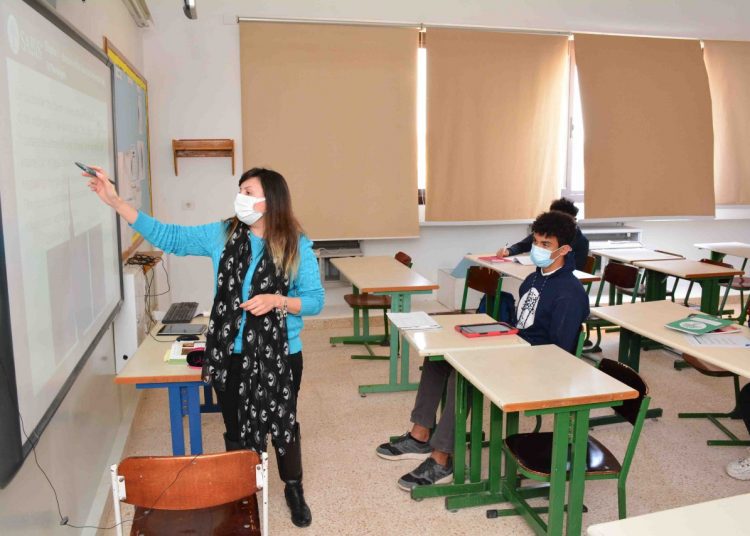By Hamed mahmoud
When school campuses shut down last spring to help slow the spread of the Coronavirus, students across Egypt, and the world, found themselves confined to their homes in the middle of the academic year. In response to the shutdown, The International Schools of Choueifat in Egypt, members of the SABIS Network, shifted to their full-fledged E-learning solutions and continued to provide a top-quality education to their students in Kindergarten to Grade 12.

The success of E-learning at The International Schools of Choueifat in Cairo and City of 6 October (ISC-Cairo and ISC-6 October), and all SABIS schools around the world, was due to having the right infrastructure in place. This infrastructure includes a systematic approach to teaching, a highly digitized curriculum, instructional methodologies that empower students to take an active role in the learning cycle and, of course, access to the technology tools that can facilitate the entire process.
These are all elements that SABIS has spent decades developing and implementing in their schools. So, when the teaching and the learning suddenly had to move to a “remote” environment, the digital platform was already in place, teachers did not have to prepare new content as it was already available on the Interactive White Boards, and students already had their E-books that include interactive activities, audios, and animations that supported their leaning from home.

Every morning, students and parents are able to log in to the SABIS Digital Platform (SDP) from their tablets or computers at home to check their daily and weekly plans, detailed schedules, and download any assigned material. The SABIS Digital Platform is an extension of their educational experience at school and a tool that allows them to take charge of their education.
In their daily routine, they attend classes as scheduled, which include core subjects like English, math, science, history, as well as art, music, and even P.E. Some courses have been pre-recorded by their teachers and uploaded on to the SDP, and some are given in a “virtual classroom” environment in real time. Virtual classes are also recorded and uploaded on to the SDP, which students can access to watch again should they need to.
To ensure that the learning is in fact taking place, students have assigned homework and continue to take regular assessments to test their understanding. While students are working, teachers receive data on their progress and performance, are able to follow-up with their students accordingly, and provide them with the support they need. In some cases, this support was provided through online peer-tutoring sessions led by other students or even On-Demand Tutoring videos available on the SDP.
Despite the current pandemic and subsequent disruption, students enrolled at ISC-Cairo and ISC-6 October are continuing their education without missing a beat. Through the SDP, which is continuously being upgraded and updated to ensure that students are receiving a top-quality and engaging education in a changing world, students can learn anywhere, at any time, and from any device—ensuring that the learning never has to stop.






Discussion about this post